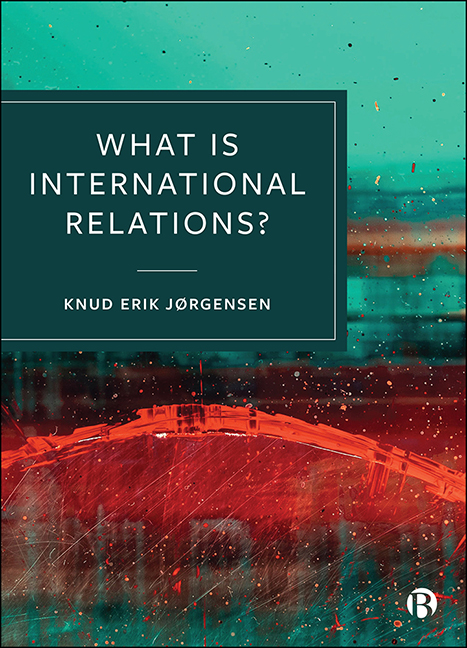Book contents
- Frontmatter
- Contents
- List of Figures, Tables and Box
- List of Abbreviations
- Preface
- Introduction
- 1 What is the Subject Matter?
- 2 What are the Human Sciences?
- 3 What is a Discipline?
- 4 What is Theory?
- 5 What is Disciplinary Diversity?
- 6 What is Community?
- 7 Globalizing International Relations?
- Conclusion
- Notes
- References
- Index
Conclusion
Published online by Cambridge University Press: 13 May 2022
- Frontmatter
- Contents
- List of Figures, Tables and Box
- List of Abbreviations
- Preface
- Introduction
- 1 What is the Subject Matter?
- 2 What are the Human Sciences?
- 3 What is a Discipline?
- 4 What is Theory?
- 5 What is Disciplinary Diversity?
- 6 What is Community?
- 7 Globalizing International Relations?
- Conclusion
- Notes
- References
- Index
Summary
What is International Relations? The previous chapters present in many ways a synthesis of an archipelago of insights about the discipline of IR, a discipline that is not always recognized or appreciated but that is practised by thousands of scholars around the world daily. I have drawn on, reproduced, reconstructed and combined a rich collection of ideas about the key parameters of disciplines in general, with an eye to the IR discipline. As highlighted on the first page of the book, it is a more than 60,000-word-long invitation to join a new understanding of IR, that is, to join a novel platform for understanding IR as a human science – as a global and diverse discipline that is ‘fully-fledged, full-blown, autonomous, intellectually legitimate and accomplished’ (Puchala, 2003: 273). What in this context is also worth repeating is Lynn Hunt's (1994) claim – to some a provocative claim – that disciplines have virtue. The previous pages have shown numerous examples of IR's virtue. With the seven key concepts that go into the structure of the book, the design of the platform and thus the understanding of IR as a mature discipline has seven pillars.
It would not have been possible to reach the synthesis or to draw the following conclusions without guidance, which has been provided by four premises. The first premise I attribute to Martin Wight (1991), according to whom one of the main purposes of university education ‘is to escape from the Zeigeist’ (p. xx). Thereby, as Hedley Bull points out, Wight provided ‘an antidote to the selfimportance and self-pity that underlie the belief of each generation that its own problems are unique’ (cited in Wight, 1991: xx). This book is informed by an objective similar to Wight’s, that is, to escape the Zeitgeist in its many guises. It is by means of getting under the skin of key concepts that it is possible to avoid getting trapped in bland survey analysis or statistical studies that skate on thin conceptual ice. Only by genuine historical analysis is it possible to escape the increasingly popular practices of temporal provincialization, that is, imposing contemporary sets of values on the past.
- Type
- Chapter
- Information
- What Is International Relations? , pp. 139 - 147Publisher: Bristol University PressPrint publication year: 2021



